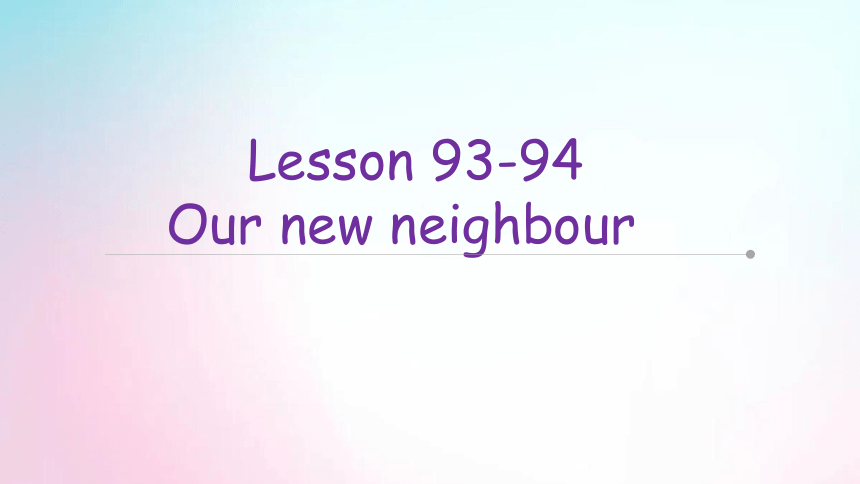(
课件网) Lesson 93-94 Our new neighbour Review! 看电视 洗衣服 打扫房间 踢足球 看望祖父母 去公园 去游泳 去钓鱼 去郊游 看书 说出词组的过去式: watched TV washed clothes cleaned the room played football visited grandparents went to the park went swimming went fishing went hiking read books Have you ever been abroad New York London Tokyo Madrid Athens Berlin Moscow Rome Seoul Sydney n.首尔 Have you ever travelled by air Who can travel by air every day R.A.F 01 03 02 pilot 2 women pilots a woman pilot Presention This is my friend, Tom. He is a pilot[ pa l t]. He has been to many places. He went to New York in 2017. He was in New York in 2017 New York in 2017 He went to Tokyo two years ago. He was in Tokyo two years ago. Tokyo,two years ago New York,in 2017 He flew to Berlin last year. He was in Berlin last year. Berlin [b : l n], last year He will fly to Moscow next week. Moscow ,next week He will return to London the week after next. Moscow London, the week after next He will rest for a few days. He has many plans. He went to New York in 2017. He went to Tokyo two years ago. He flew to Berlin last year. 主语+ 动词过去式+ 过去的时间 主语 + will + 动词原形 + 将来的时间 He will fly to Moscow next week. He will return to London the week after next. He is going to visit his friend. He is going to watch a movie. He is going to walk his dog. 一般 将来时 一般 过去时 一般 将来时 一般过去时和一般将来时的区别? 概念 一般过去时: 一般将来时: 表示过去发生的动作或存在的状态。 表示将要发生的动作或存在的状态及打算、计划或准备做某事。 标志词 一般过去: 表示过去的时间状语有: yesterday, the day before yesterday, last…, before, ago(……以前), this morning…,just now 一般将来: 表示将来的时间状语有: tomorrow, next (week, day, month, year, Tuesday) , soon, the day after tomorrow. 结构 一般过去: 表示过去动作: 主语+动词过去式+其他 表示过去存在的状态: 主语+was/were+其他 一般将来: will/shall+动词原形。 (注意:be going to =will) be going to+动词原形; e.g. I am going to go swimming tomorrow. =I will go swimming tomorrow 一般过去时??一般将来时?? 时间状语分类! He ____ to Spain a week ago. A. fly B. flies C. flying D. flew 2. When will the new people _____ into the house came B. move C. coming D. moving 3. My mother_____ me yesterday morning. A. calls B. calling C. telephoned D. telephones 4. They are_____ along the street. A. walk B. walks C. walked D. walking 5.He is _____ his milk. A. drinks B. drinking C. drink D. drank Multiple Choice D B C D B 1. I flied to Geneva last month. (next month) _____ 2. Jenny will go to Sydney me week after next. (last week) _____ Sentence transformation 3. What will you do next Sunday ( last Sunday) _____ 4. Helen will stay in Berlin next month. (last year) _____ What did you do last Sunday? Helen stayed in Berlin last year. Jenny went to Sydney last week. I will fly to Geneva next month. 用所给词的适当形式填空。 1.I_____(go) to school tomorrow morning. 2. She_____(come ) t ... ...

